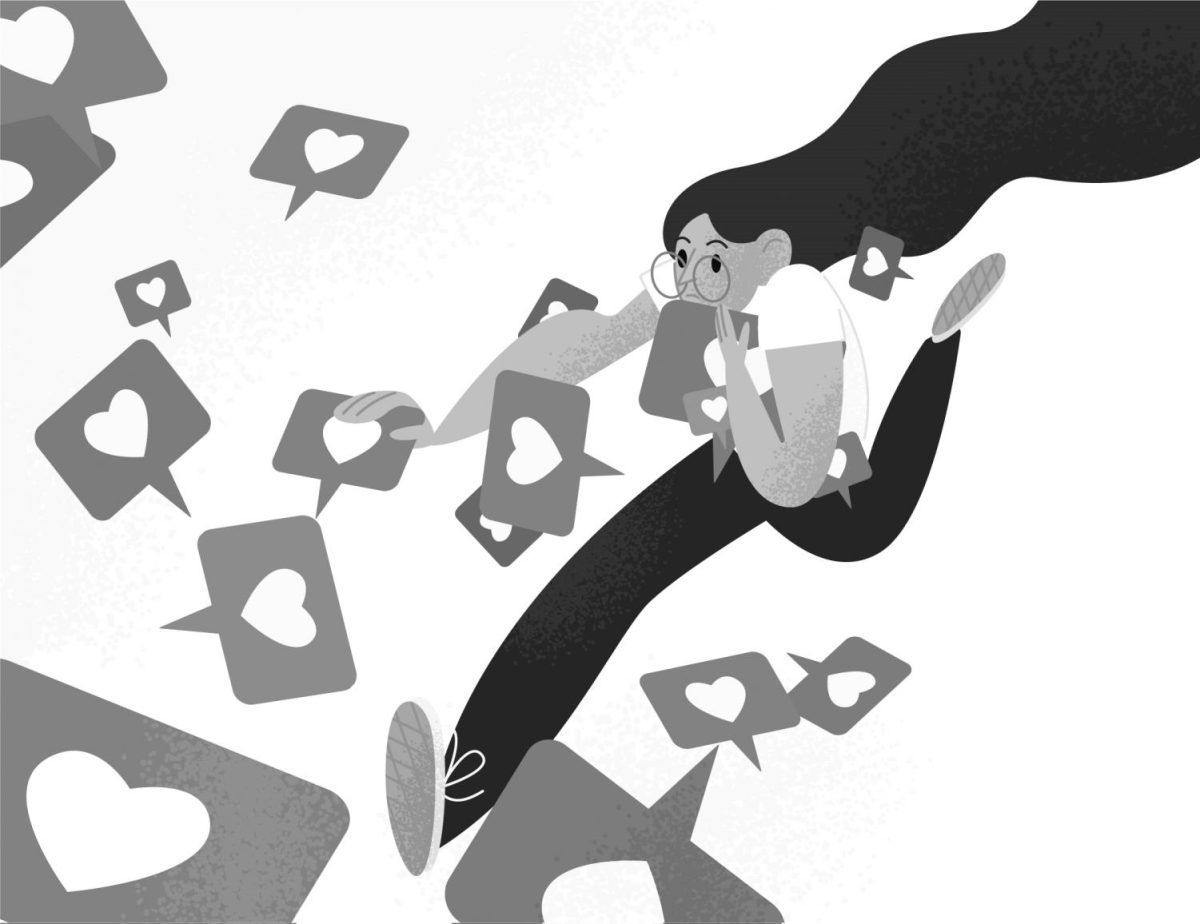Use of social media may be linked to depression
Since some people turn to social media and other online platforms for validation, various studies suggest that there’s a possible relationship between social media and depression.
With May being Mental Health Awareness Month, Representative Alexandria Ocasio-Cortez stated in a recent interview that social media is a risk to the public causing depression and addiction.
The evidence to suggest there is a connection between mental health struggles and social media, while inconsistent at times, is substantial, according to Time Magazine.
“If you’re depending on a social media network for support, it’s not real or tangible,” said Campus Nurse Michelle Barkley. “Limiting use is easier said than done, but that combined with finding balance, getting sleep and exercise, can help prioritize.”
Twenty-two-year-old cultural anthropology student Francisco Luna said there is a loss of identity and connection when being on social media.
“You answer when you want, post when you want, talk to who you want and all in discretion,” said Luna. “Don’t let social media become who you are, and if it’s overwhelming you, get away from it.”
Ocasio-Cortez expressed her concern over people of all ages abusing social media due to its “increased isolation, depression, anxiety, addiction, and escapism,” but particularly for children under three, she said in a podcast with Skullduggery.
Carmesha Grayson, a 19-year-old liberal studies major, said she posts on social media every other day to a few times a week. She also thinks that people go on social media to look for validation because she sometimes does that, too.
“If I get a lot of likes, that means I must be good looking,” said Grayson. “I’m shifting my mind but I did think that at one point.”
Grayson said she thinks a lot of people are finding their worth on social media.
Grayson said she believes that there is a link between the use of social media and depression.
“A lot of people are finding their worth on social media,” said Grayson. “The people who don’t get the likes or don’t look the way that the models look and stuff on Instagram, if they don’t get the likes, I feel like that leads them to being depressed.”
A March 14 article published by Time Magazine stated that rates of depression amongst teens and young adults between 2009 to 2017 skyrocketed to a 60 percent increase, according to a study published in the Journal of Abnormal Psychology.
Barkley said depression is, at times, a chemical problem, and if people don’t address the root cause of the issue, the problem will persist.
“Different chemical makeups can make it harder in terms of how you access those coping skills. You can use counseling and find the right support system, but sometimes that’s not enough,” she said.
Counseling Supervisor Eva Rhodes said students often reveal things about their mental health in writing and homework, and this became the basis of the Behavior Intervention Response Team, which is a referral system on campus that helps students access the mental health care they may not know they need.
“We provide this resource to mostly faculty and staff who have spoken to or notice a student they’re concerned about,” said Rhodes.
Students may also fill out their own BIRT referral and be considered just the same.
Crisis counseling is another avenue to take that requires no referral. Crisis counselors are available all day, and will drop what they are doing to speak to a student in need, said Rhodes.
“There are a lot of pressures on students today from loans to homelessness,” Rhodes continued. “Primarily we’re an educational institution, but we are trying to address all those issues as best we can given our resources.”
WellSpace partnered with CRC through a mental health grant this semester and is primary medical care for all that also addresses mental health, said Rhodes. They are on campus every Friday in the health office.
While resources and reaching out are efficient ways of juggling mental health, popular culture amongst teens and young adults often stigmatizes and normalizes painful behaviors because of social media, further fueling the issue.
“Suicide is commonly joked about in memes,” Luna said. “It’s normalized.”
Luna said he thinks that while it’s not wrong to discuss suicide, we would be ignorant to say our culture doesn’t influence us.
“We can’t stop bad things from happening, but we can definitely start good things,” said Luna.

